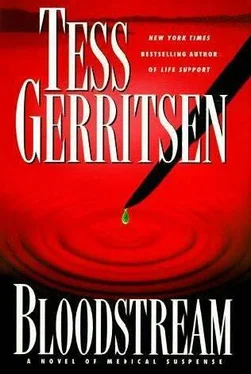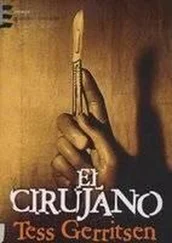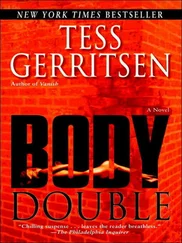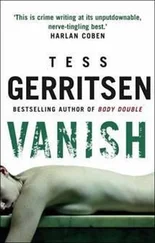“Then the family was wealthy?”
“I wouldn’t say wealthy, but they’d be considered land rich. Vince said the property came into the Gow family in the late 1700s, and stayed with them until this… event. It was later sold off piece by piece. Developed.”
“Is Vince that scruffy kid with the ponytail?”
She laughed. “All my students are scruffy. It’s almost a prerequisite for graduation.”
“And where can I find Vince right now?”
“At nine o’clock, he should be in his office. The museum basement. I’ll call and let him know you’re coming.”
Lincoln had been here before. The broad wooden table was covered with pottery shards this time, not human remains, and the basement windows were blotted over by drifted snow. The lack of natural light, and the damp stone steps, made Lincoln feel he had descended into some vast underground cavern. He walked into the maze of storage shelves, past towering stacks of artifact boxes, their labels feathered by mold. “Human mandible (male)” was all he could make out on one label. A wooden box, he thought, is a sadly anonymous resting place for what had once been a man’s jaw. He moved deeper into the maze, his throat already scratchy from the dust and mildew and a faintly smoky odor that grew stronger as he progressed through the shadows, toward the far end of the basement.
Marijuana.
“Mr. Brentano?” he called out.
“I’m back here, Chief Kelly,” a voice answered. “Take a left at the stuffed owl.”
Lincoln walked a few more paces and came to a great horned owl mounted in a glass case. He turned left.
Vince Brentano’s “office” was little more than a desk and a filing cabinet crammed in between artifact shelves. Though there was no ashtray in sight, the aroma of pot hung heavy in the air, and the young man, clearly uneasy in the presence of a cop, had assumed a defensive posture, barricaded behind his desk, arms braced in front of him. Looking the boy straight in the eye, Lincoln held out his hand in greeting.
After a hesitation, Vince shook it. They both understood the meaning of that gesture: a treaty between them was now in force.
“Sit down,” offered Vince. “You can set that box on the floor, but watch the chair-it wobbles a little. Everything in here wobbles. As you can see, I got the deluxe office.”
Lincoln removed the box from the chair and set it down. The contents gave an ominous clatter.
“Bones,” said Vince.
“Human?”
“Lowland gorifia. I use them for comparison teaching. I hand them to the undergrads and ask them for a diagnosis, but I don’t tell them the bones aren’t human. You should hear some of the crazy answers I get. Everything from acromegaly to syphilis.”
“That’s a trick question.”
“Hey, all of life is a trick question.” Vince sat back, thoughtfully regarding Lincoln. “I take it this visit is a trick question, too. The police don’t usually waste their time on century-old murders.”
“The Gow family interests me for other reasons.”
“Which are?”
“I believe their deaths may be related to our current problems in Tranquility.”
Vince looked puzzled. “Me you referring to the recent murders?”
“They were committed by otherwise normal kids. Teenagers who lost control and killed. We’ve got child psychologists psychoanalyzing every kid in town, but they can’t explain it. So I got to thinking about what happened to the Gows. The parallels.”
“You mean the part about teenage killers?” Vince shrugged. “The underdog will only take so much abuse. When authority clamps down too hard, young people rebel. It’s happened again and again.”
“This isn’t rebellion. It’s kids going berserk, killing friends and family.” He paused. “The same thing happened fifty-two years ago.”
“What did?”
“Nineteen forty-six, in Tranquility. Seven murders committed during the month of November.”
“Seven?” Vince’s eyes widened behind the wire-rim glasses. “In a town of how many people?”
“In 1946, there were seven hundred living in Tranquility Now we’re facing the same crisis, all over again.”
Vince gave a startled laugh. “Man, you’ve obviously got some major sociological issues in your town, Chief. But don’t blame it on the kids. Look to the adults.
When children grow up with violence, they learn that violence is how they solve problems. Dad worships the almighty gun, goes out and blasts a deer to smithereens for sport. Junior gets the message: Killing is fun.”
“That’s too pat an explanation.”
“Our society glorifies violence! And then we put guns in the hands of children.
Ask any sociologist.”
“I don’t think the sociologists can explain this.”
“Okay. What’s your explanation, Chief Kelly?”
“Rainfall.”
There was a long silence. “Excuse me?”
“In 1946, and again this year, we’ve had identical weather patterns. It started off in April, with heavy rains. The local bridge was washed out, livestock were drowned-”
Vince rolled his eyes heavenward. “A flood of Biblical proportions?”
“Look, I’m not a religious man-”
“I’m not a believer, either, Chief Kelly. I’m a scientist.”
“Then you’re always looking for patterns in nature, right? Correlations. Well, here’s the pattern I’m seeing, both this year and in 1946. In April and May, our town has record rainfall. The Locust River floods, and there’s major damage to homes along the riverbank. Then the rains stop, and in July and August, there’s no rain at all. In fact, it’s unusually hot, with temperatures high enough to make it into the record books, both those years.” He took a breath, slowly released it. “Finally, in November,” he said, “it starts to happen.”
“What does?”
“The killing.”
Vince said nothing, his expression shuttered.
“I know it sounds crazy,” said Lincoln.
“You have no idea how crazy it sounds.”
“But the correlation’s there. Dr. Elliot thinks it could be a natural phenomenon. A new bacteria or algae in the lake, causing personality changes. I read about a similar thing happening, in rivers down south. A microorganism’s killing fish by the millions. It makes a toxin that affects humans as well. It damages their concentration, sometimes causes rage attacks.”
“You must mean the dinoflagellate, Pfiesteria.”
“Yes. It could parallel what’s happening here. That’s why I want to know about the Gows. Specifically, whether there were heavy rains the year they died.
Government flood data doesn’t go back that fat I need historical news accounts.”
Vince finally understood. “You want to see my newspaper clippings.”
“It might have the information I’m looking for.”
“A flood.” Vince sat back, frowning, as though a memory had just floated to the surface. “This is weird. I do seem to recall something about a flood He swiveled around to the filing cabinet, yanked open the drawer, and shuffled through folders. “Where did I see that? Where, where…“ He pulled out a file labeled:
“November, 1887, Two Hills Herald.” It contained a stack of photocopied news articles.
“The rain would have happened in the springtime,” said Lincoln. “You wouldn’t see it in the November clippings-”
“No, this had something to do with the Gow case. I remember jotting it down.” He flipped through the photocopies, then paused, staring at a wrinkled page. “Okay, here’s the article, dated November twenty-third. Headline: SEVENTEEN-YEAR-OLD
SLAUGHTERS OWN FAMILY. FIVE DEAD. Goes on to mention the victims, Mr. and Mrs.
Theodore Gow, their children, Jennie and Joseph, and Mrs. Gow’s mother, Althea Frick.” He set the page aside. “I remember now. It was in the obituaries.”
Читать дальше
Конец ознакомительного отрывка
Купить книгу












